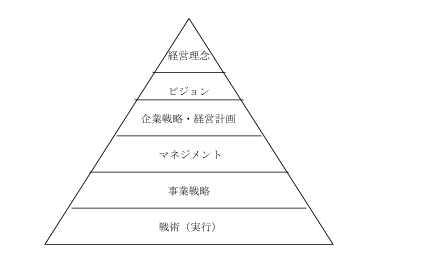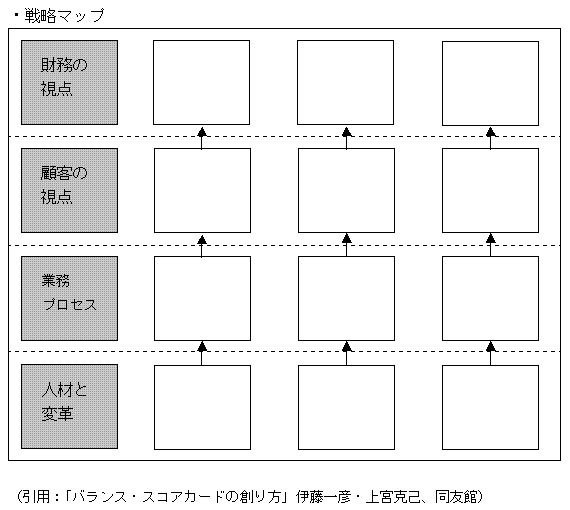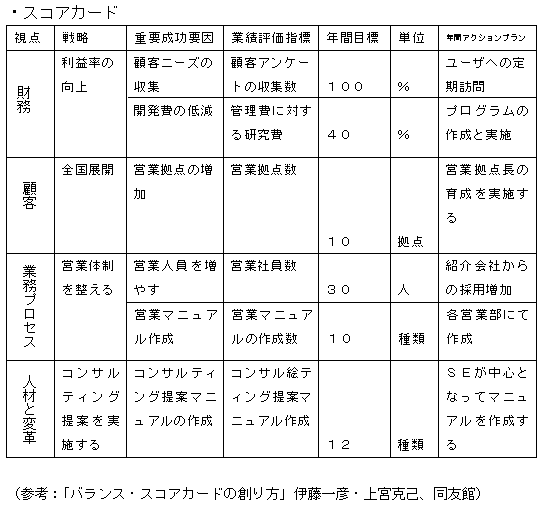Font Size
- S
- M
- L
Business Consulting
New Business planning

Why are new businesses needed?
Companies seeking to go public are required to submit a business plan for the IPO listing examination, and since many of them already have a certain level of sales and organizational structure in place, their business plans are often prepared as an extension of their existing business. However, few companies take into account the advantages and disadvantages of business planning as an extension of the current business, which means that valuable opportunities for management improvement are lost when looking ahead to after the company goes public. We believe that the reason for this situation is that both the client company and the IPO consulting firm temporarily forget to adopt the best solution from a long-term perspective. We believe that the true business plan required in preparation for an IPO is a management plan that takes into account post-IPO business development even before the IPO, and if possible, it is ideal to establish management with an eye toward an IPO from the time the company is established.
Background of the global economy and market changes
Today’s economic environment is changing at an unprecedented pace. Globalization has made cross-border business development commonplace, and companies are moving aggressively to seek new market opportunities. This is largely due to the development of communications technology and logistics infrastructure, which has made it easier to do business with remote areas and establish local subsidiaries. This has intensified competition beyond the confines of local markets, and companies are seeking new strategies to leverage their unique strengths.
In addition, the industrial structure itself is changing as the economy becomes increasingly digitalized. The shift from the traditional manufacturing-oriented economy to the service industry and digital services is becoming more pronounced, and in an increasing number of cases, traditional business models are finding it difficult to cope with this change. In order to respond to this change, innovation-based thinking is required, and the key to success is to give shape to new ideas.
In addition, the growth of emerging markets is also a major focus. In Asia and Africa, the consumer market is expanding rapidly due to the expansion of the middle class, and business opportunities are expanding not only for multinational companies but also for small and medium-sized enterprises. Thus, the economic environment is fluctuating, and planning must be flexible and responsive to these changes.
In addition, supply chain restructuring and digital transformation (DX) have become even more important after the Corona disaster. Companies need to enhance their crisis management capabilities and at the same time strive to secure new sources of revenue. Against this backdrop, it is essential to develop a comprehensive and actionable plan for future-oriented strategies.
Accelerating Technological Innovation and Digital Transformation
Technological innovation has become an unavoidable theme in corporate management in recent years. In particular, technologies such as AI, IoT, and Big Data have brought innovation to many industries and are the driving force behind new value creation. For example, AI can optimize business operations by enhancing data analysis and making demand forecasting and customer management more efficient. IoT technology also enables remote monitoring and automation of products and equipment, simultaneously reducing costs and increasing productivity.
With the evolution of information technology, traditional business processes are undergoing a major overhaul and the digital shift is accelerating. As a result, paper-based management and analog marketing methods are rapidly becoming obsolete, and efficient operations utilizing digital platforms are essential. This transformation has also impacted the points of contact with customers, requiring personalized service delivery.
Furthermore, the proliferation of cloud services has facilitated data storage and sharing, enabling remote work and collaboration by global teams. In line with this trend, business models that do not rely on physical locations are attracting attention, and the barriers to entry for startup companies have been lowered.
In this trend, the introduction and utilization of the latest technologies is key to realizing new initiatives. In particular, market analysis and understanding customer needs through the use of AI and big data are essential to establishing a competitive advantage. Catching the wave of technological innovation and adopting advanced approaches will open up opportunities to create new value.
ESG Management/SDGs Impact and Sustainability Responses
There is a global need to address sustainable management, and ESG (Environmental, Social, and Governance) management is gaining support from investors and consumers, and has become a key element in increasing corporate value. As environmental considerations and social contribution activities are required, it is essential to have a perspective to identify new business opportunities.
Renewable energy and efforts to realize a decarbonized society are creating new demands not only in the energy sector, but also in the manufacturing and logistics industries. In addition, product design and the development of recycling technologies that incorporate the concept of a circular economy will strengthen competitiveness.
Efforts to achieve the Sustainable Development Goals (SDGs) set forth by the United Nations are also attracting attention. Activities in line with these goals not only fulfill corporate social responsibility, but also provide opportunities to create new markets. For example, the development of water resource management and waste reduction technologies has the potential to both solve social issues and improve profitability.
In addition, ESG criteria can influence investor decision-making and encourage capital to flow into companies that are developing sustainable activities. Against this backdrop, there is a need to shift to a model that generates earnings while fulfilling social responsibility.
Going forward, it will be essential to develop plans that incorporate these perspectives and strategies that balance sustainability and profitability. Embodying efforts to protect the environment and address social issues will pave the way for increased credibility and long-term growth.
Key Insights and Strategies for Success of New Business Planning

Starting a new business can be a thrilling yet daunting journey. As entrepreneurs step into unknown territory, careful planning becomes essential to building a solid foundation for success. Whether you are an aspiring entrepreneur or an established business leader looking to expand, understanding the key aspects of new business planning is vital. This blog post will address common questions and concerns surrounding business planning, and provide insights on the latest trends, technological innovations, and critical factors that contribute to the success of new ventures.
The Importance of a Well-Structured Business Plan
A clear and detailed business plan is the cornerstone of any successful venture. It serves not only as a roadmap for the company’s growth but also as a tool to secure financing from investors or lenders. According to the U.S. Small Business Administration, a well-developed business plan can increase the chances of success by up to 30%. It outlines critical aspects like the business concept, target market, financial projections, and marketing strategies.
Beyond simply listing goals, a business plan helps to identify potential challenges and risks, offering a structured approach to mitigating them. This document must also be flexible enough to adapt to changes in market conditions, customer preferences, or unforeseen obstacles. For new businesses, this adaptability is key as the environment may shift quickly, especially with the rise of digital transformation and changing consumer behaviors.
Understanding Market Research and Customer Insights
Effective market research is crucial when planning a new business. It provides insights into industry trends, competitors, and customer needs. This research should not only be thorough but ongoing, as market conditions can change rapidly due to economic factors or technological advancements. Businesses must be agile and continuously assess customer demands to remain competitive.
Globally, the integration of data analytics tools has revolutionized market research. With the rise of big data, companies can now access a wealth of information on consumer behavior, allowing them to tailor their products and services more precisely. In addition, social media platforms and online surveys are becoming increasingly important tools for understanding consumer sentiment, which is essential when positioning a product or service for success in a competitive landscape.
Financial Planning: Balancing Costs and Profitability
Financial planning is another crucial aspect of new business planning. Accurately forecasting costs and revenue is essential to ensure that the company can operate smoothly in its initial stages and remain viable in the long term. Many new businesses fail due to poor financial management, such as underestimating expenses or overestimating revenue projections.
It is important to understand the difference between fixed and variable costs and to ensure there is enough working capital to cover operational expenses during lean periods. Moreover, future financial projections should be as realistic as possible, factoring in unexpected expenses or downturns in the market. For international businesses, currency fluctuations and differing tax regulations can add an additional layer of complexity, requiring companies to have a robust financial strategy that accounts for such variables.
Leveraging Technology for Business Growth
The role of technology in modern business planning cannot be overstated. Innovations in automation, artificial intelligence (AI), and cloud computing are allowing businesses to streamline operations, reduce costs, and improve customer service. New businesses can benefit immensely from these technologies by adopting solutions that enhance efficiency and scalability.
For example, the use of customer relationship management (CRM) software can help track leads, manage customer interactions, and analyze sales performance. Cloud-based tools also enable businesses to scale more efficiently by eliminating the need for expensive infrastructure investments. As more companies move to a digital-first model, incorporating cutting-edge technology is becoming a key factor in staying competitive and agile in today’s market.
Identifying and Managing Risks in New Business Ventures
Every new business faces inherent risks—whether related to financial uncertainty, market competition, or changes in regulations. Identifying and managing these risks is essential to the company’s long-term viability. While some risks are unavoidable, many can be mitigated through careful planning and risk management strategies.
Startups should take a proactive approach to risk identification, considering potential threats such as economic downturns, supply chain disruptions, or cybersecurity breaches. For international businesses, geopolitical risks and changing trade policies must also be factored into risk assessments. Creating contingency plans and investing in insurance are also strategies that can help businesses stay resilient in the face of unforeseen challenges.
Sustainability and Social Responsibility in Business Planning
Today, more consumers are demanding that companies take responsibility for their environmental and social impacts. As a result, sustainability has become a major consideration in business planning. New businesses that integrate sustainability into their core operations not only contribute to environmental preservation but also build trust and loyalty among customers who value eco-conscious practices.
For example, businesses can reduce waste, improve energy efficiency, or adopt sustainable sourcing strategies. In some cases, governments and international bodies offer incentives for companies that prioritize sustainability, which can provide additional opportunities for growth. By aligning business goals with the broader objective of social responsibility, companies can enhance their brand image and appeal to a growing base of socially-conscious consumers.
The Globalization of Business and Market Entry Strategies
As the world becomes more interconnected, businesses are increasingly looking to expand beyond domestic borders. Globalization has opened up numerous opportunities for new businesses to tap into international markets, but it also introduces complexities such as cultural differences, currency risks, and varying regulatory environments.
Market entry strategies, such as joint ventures, franchising, or direct investment, depend on the target country’s economic landscape, legal framework, and consumer behavior. For example, businesses entering emerging markets must understand the local infrastructure, customer preferences, and potential barriers to entry, such as tariffs or regulatory restrictions. Furthermore, globalization has prompted many companies to explore digital platforms to reach a wider audience more efficiently, reducing the challenges of geographic barriers.
The Role of Marketing in Business Planning
A robust marketing strategy is essential for attracting customers and generating sales. When planning a new business, defining your target audience and creating a brand identity are critical steps. In today’s highly competitive marketplace, marketing must be strategic and data-driven, ensuring that resources are allocated effectively to reach the right customers.
Technological innovations in marketing, such as artificial intelligence, data analytics, and influencer marketing, are transforming the way businesses reach their audiences. For example, AI-powered tools allow businesses to personalize marketing campaigns, targeting specific consumer segments with tailored messages. Social media platforms, e-commerce websites, and search engine optimization (SEO) strategies play a pivotal role in creating brand awareness and driving sales.
Legal and Regulatory Considerations in Business Planning
Navigating legal and regulatory frameworks is a fundamental part of any new business venture. Depending on the industry and region, companies must comply with various laws, including those related to taxes, intellectual property, labor practices, and consumer protection. Failure to adhere to these regulations can result in penalties, lawsuits, or reputational damage.
In addition to complying with domestic laws, businesses expanding internationally must familiarize themselves with the legal systems of the countries they wish to operate in. This includes understanding tax structures, labor laws, and any industry-specific regulations. For instance, the implementation of the General Data Protection Regulation (GDPR) in Europe has significantly impacted companies’ data privacy practices, and businesses must ensure they are compliant when handling customer data.
Building a Strong Business Culture
The culture of a company plays a pivotal role in its success. A positive, inclusive, and innovative work environment encourages employees to perform at their best, driving overall business performance. For new businesses, establishing a strong organizational culture early on is crucial for long-term success.
As companies grow, maintaining this culture can become more challenging, particularly in larger, geographically diverse teams. However, leveraging technology such as collaboration tools and video conferencing platforms can help to keep teams aligned and engaged. Furthermore, fostering an open and transparent communication environment ensures that employees feel valued and motivated to contribute to the company’s mission.
Planning for a new business is a multifaceted process that requires careful thought and strategy. From financial projections to market analysis, technology adoption, and sustainability, businesses must be prepared to adapt and respond to ever-changing conditions. By leveraging current trends, technological innovations, and risk management strategies, entrepreneurs can position their businesses for growth and success. Whether focusing on local expansion or global opportunities, strong planning is the key to ensuring a smooth launch and a sustainable business future. The landscape for new businesses continues to evolve rapidly, and those who understand the intricacies of business planning will be better equipped to navigate challenges and seize opportunities in this dynamic environment.

Determination of business strategy and business plan
Companies seeking an IPO are required to submit a business plan for the listing examination, and many of them have already made some progress in terms of sales size and organisational structure, so their business plans are often prepared as an extension of their existing business. However, few companies take into account the advantages and disadvantages of considering their business plan as an extension of their current business, which means that valuable opportunities for management improvement are lost when looking at the post-listing period. We believe that the reason for this situation is that both the client company and the IPO consultant temporarily forget to adopt the best solution from a long-term perspective. We believe that the real business plan required when preparing for an IPO is a management plan that takes into account business development after the IPO, even before the IPO, and that, if possible, it is ideal to construct a management plan with a view to an IPO from the time the company is established.
Organisation before business planning

In developing a business plan, it is essential to design business strategy, marketing and management. In addition, when the listing examination is conducted, the company must have been operating under the management plan for at least two years, so building up the company’s corporate structure at an early stage will lead to a smooth IPO.
● Items for consideration
Management philosophy/vision
Management strategy/business plan
Marketing
Purchasing/manufacturing
Sales/service
Management/administration
Management is not something that is designed and completed, but is most meaningful when it leads to management improvement through implementation and verification, and it is important to improve the performance level of the entire company organisation by quantifying each item in order to verify whether the original plan has been implemented or not.
Balanced scorecard
The Balanced Scorecard is a ‘strategic management framework’ and ‘strategic communication’ tool that uses four perspectives: financial, customer, business process, human resources and change. It was published in 1992 by Robert S. Captain of Harvard University, USA, and management consultant David P. Norton. It is an action management frame consisting of a strategy map and a scorecard. This balanced scorecard enables the implementation and validation of quantified plans.








